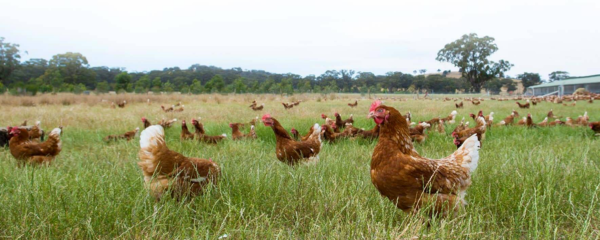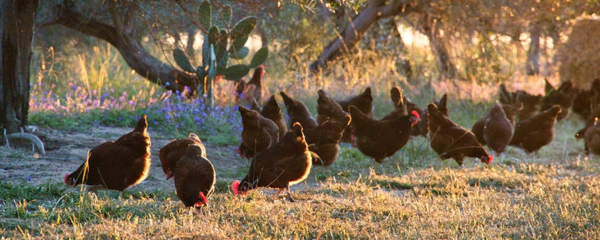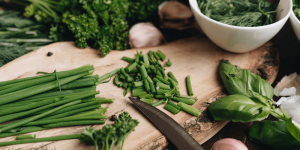The Label Difference: Free-Range Vs Pasture-Raised
For many decades, the egg aisle consisted almost entirely of caged eggs coming from hens living indescribable lives. After the growing awareness of consumers about this unacceptable form of agriculture, things have changed considerably. All major supermarkets in Australia have moved to place a ban on factory-farmed eggs. However, there are still a few label differences to be mindful of when considering your next egg purchase.
Free-Range
In essence, free-range means hens must have ‘meaningful and regular access’ to an outdoor range during daylight hours, and be free to roam and forage outside. According to an Australian Law passed in 2017, egg producers can run a maximum of 10,000 hens per hectare of land in order to be accredited as free-range (the equivalent of one hen per square metre).
However, in practice, stocking hens at 10,000 per hectare and giving them regular access to the outdoors, might not result in animals that are especially ‘free’. For some consumers and farmers who consider and believe in the importance of animal welfare, this standard may not be enough.

Pasture-Raised
Pasture-raised is the best term to look for if you want to ensure the eggs you’re consuming came from animals with regular access to the outdoors, as well as grazing opportunities.
Pastured hens are raised in paddocks and have more than just freedom from confinement, they have the freedom to behave naturally.
Fruitlink’s Yallamundi Pasture-Raised Eggs are an excellent alternative to free-range eggs. Yallamundi hens live outdoors with mobile houses for shelter, and the hens roam freely on fresh pasture where they exhibit natural behaviour to dust bathe, scratch and forage, and to eat worms, grubs and insects.
The houses are regularly moved to ensure continuous grass cover, and allow the previous area’s vegetation to recover. These shelters are located in an olive grove, providing shade and protection for the birds. The feed is based on locally grown grains and plant based proteins. The hens are cared for by the farmer, and live in small flocks with a maximum density of 750 birds per hectare.
The end result are more ethical, sustainable, and of course, tastier eggs.





